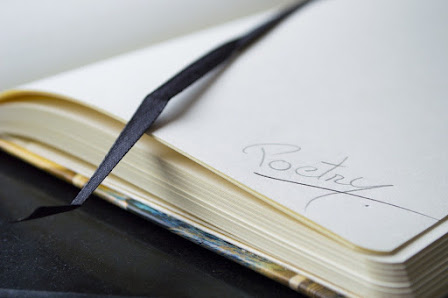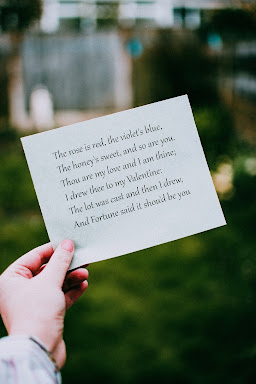Why Is the Initial Line of a Sonnet Significant?
Much the same as with a novel, a short story, tune verses, or some other piece of exploratory writing, the mainline of a sonnet should give the peruser motivation to keep perusing. A writer may achieve this by introducing a striking picture, a specifically rich manner of expression, or an uncommon utilize non-literal language inside the principal words. On account of story sonnets, the initial lines may serve to present a character or plot gadget. Notwithstanding the sort of sonnet, the initial line fills a similar need: to snare the peruser and urge them to peruse the entire sonnet, holding off on halting until the absolute last line.
Meet One of Your New Educators
Seek after your enthusiasm with online classes instructed by grant winning culinary specialists, scholars, and entertainers. With 90+ long periods of exercises, you’ll learn constantly.
11 Instances of Verse Opening Lines
There are 1,000 unique approaches to start a sonnet, yet the best writers have a method of catching the peruser’s eye from the very beginning. Here are a few instances of sonnets by renowned artists that have especially striking first lines—indeed, for large numbers of them the principal line capacities as the true title of the sonnet.
“I meandered forlorn as a cloud” from “I Meandered Desolate As A Cloud (Daffodils)” by William Wordsworth
“Whose woods these are I think I know” from “Halting by Woods on a Frigid Night” by Robert Ice
“Since I was unable to stop for Death” from “In light of the fact that I was unable to stop for Death” by Emily Dickinson
“How would I love you? Allow me to check the ways” from “How Would I Love You? (Work 43)” by Elizabeth Barrett Carmelizing
“Will I contrast you with a late spring’s day?” from “Poem 18” by William Shakespeare
“Two streets wandered in a yellow wood” from “The Street Not Taken” by Robert Ice
“Release us at that point, you and I” from “The Affection Melody of J. Alfred Prufrock” by T.S. Eliot
“O Commander! my Skipper! our unfortunate excursion is done” from “O Chief! My Commander!” by Walt Whitman
“Splendid star, would I were stedfast as thou workmanship” from “Brilliant star, would I were stedfast as thou craftsmanship” by John Keats
“I praise myself, and sing myself” from “Tune of Myself” by Walt Whitman
“All the slopes and vales along” from “All the slopes and vales along” by Charles Sorley
David Mamet Shows Emotional Composition
Judy Blume Educates Composing
Malcolm Gladwell Instructs Composing
James Patterson Educates Composing
4 Hints for Beginning Your Sonnet
Composing verse can be incredibly troublesome, particularly with regards to composing the ideal opening line. A sonnet’s initial line addresses the first run through a peruser gets the opportunity to see your composing style or retain your sonnet’s topic. Here are some extraordinary tips to help poke you toward composing the ideal opening line for your sonnet:
Think about your structure. Prior to composing your initial line, you should understand what sort of sonnet you are composing. Various sorts of verse may require various strategies and needs while making a permanent opening line. In case you’re composing a haiku, you’ll need to give unique consideration to the syllable tally. A rhyming limerick requests that you build up the rhyme plot inside the principal line. Free refrain sonnets—which are not rhyming sonnets nor are they limited by a particular meter—offer an opportunity to zero in simply on picking the correct words or communicating a thought. Regardless of what sort of sonnet you’re composing, you’ll need to focus on your beautiful structure to compose the most ideal opening line for your own sonnets.
Start by freewriting. Verse composing can be burdensome. Now and then, it’s useful to give your mind the opportunity to fantasize and meander when composing sonnets, unburdened by the shackles of rhyme plan, meter or line breaks. That is the place where freewriting comes in. Start with the seed of your verse thought; maybe it’s something as little as a picture or an expression. Power yourself to write down as numerous words, thoughts, or pictures as you can ceaselessly. Continue to compose until you’ve filled the whole page with composing thoughts or lovely expressions. In any event, this activity can fill in as valuable composing practice and may create thoughts for other composing projects, however periodically freewriting can yield portions of good verse and even an extraordinary opening line.
Draw from individual experience. Incredible opening lines produce a quick passionate association with the peruser. In spite of the fact that it’s conceivable to be propelled by theoretical composing prompts, generally the best spot to begin is close to home insight. Attempt to fuse your real recollections, individual reflections, or lived encounters into your verse. Getting your sonnet going with something individual and extraordinary to your own life will give your verse a shock of genuineness and explicitness.
Recite your first line for all to hear. Individuals don’t simply understand verse; they present it to other people. In case you’re experiencing difficulty composing a lovely opening line, consider how your sonnet sounds when perused resoundingly. The best lines of verse have an engaging sonic quality to them, and numerous popular sonnets wed fresh symbolism with satisfying sounds in their initial lines. Edgar Allen Poe’s initial line of “The Raven” utilizes similar sounding word usage to create a fantastic staccato impact when perused out loud. Other scholarly gadgets like sound similarity or inner rhyme can work as unique sonnet starters. Continuously read your own verse so anyone can hear to perceive how your first line moves off the tongue.

